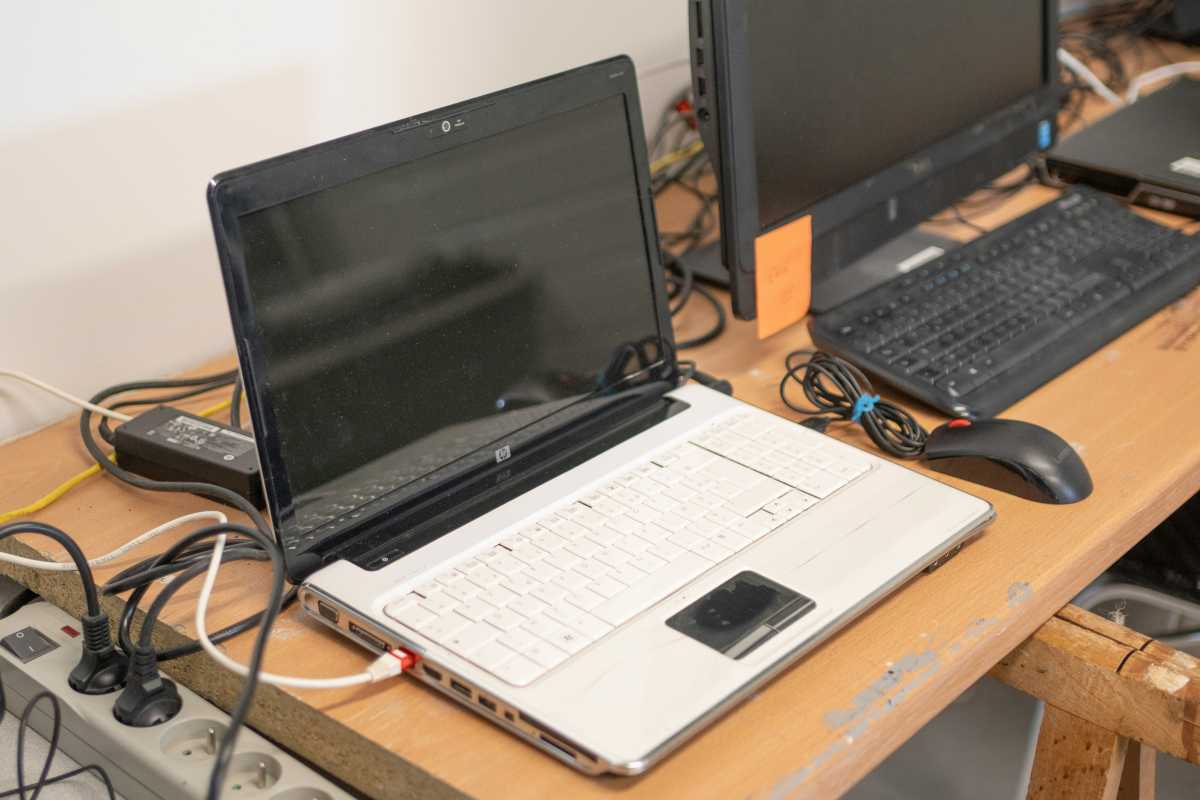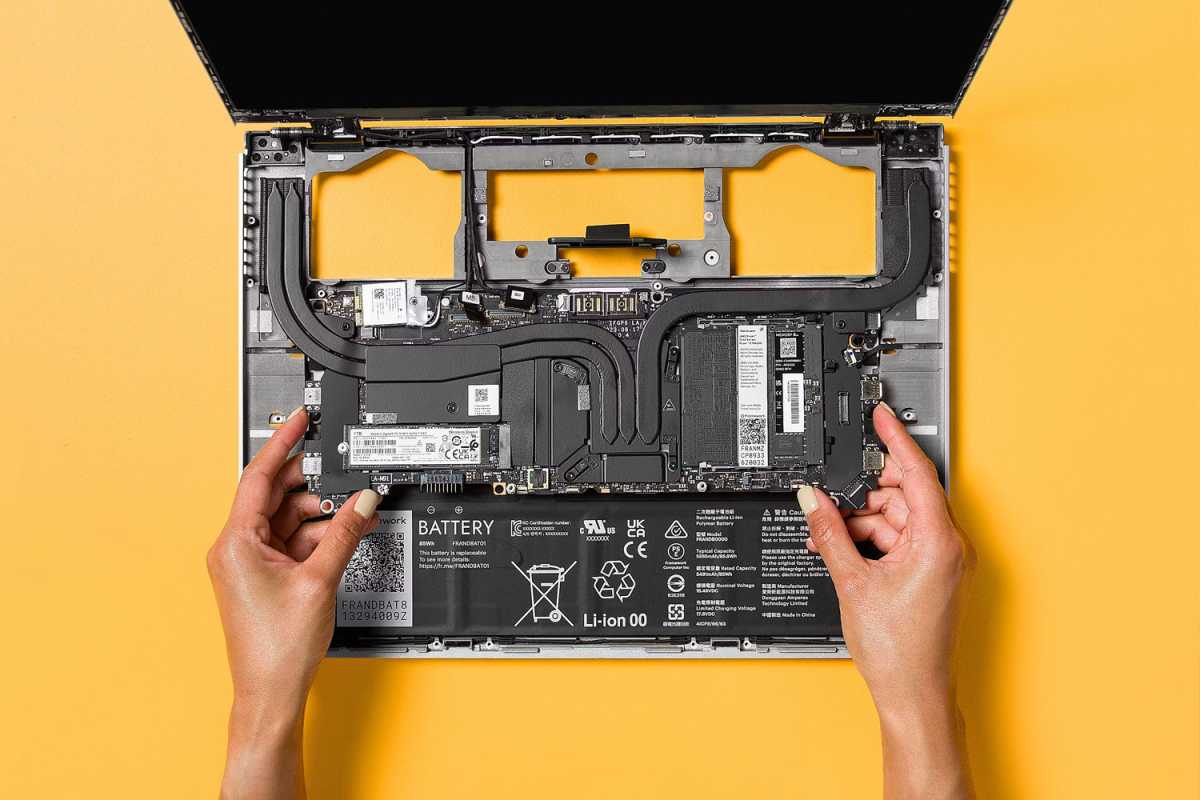Are refurbished laptops actually more eco-friendly than new laptops?
There are plenty of reasons to buy a refurbished laptop, mainly that you can get a great laptop at a fraction of the price — but also because refurbished laptops are better for the environment. Or are they? And if they are, how much impact do they actually have?
This is a question worth answering before you decide on your next laptop upgrade, especially if you want to be green. Let’s take a look at how eco-friendly refurbished laptops really are.
Refurbished vs. eco-friendly laptopsSome laptops are more eco-friendly than others, and the eco-friendliness of a laptop comes down to a few factors.
The most eco-friendly laptops tend to be: made from recycled or low-carbon materials; built using reduced carbon manufacturing techniques; and shipped in recyclable or bio-degradable packaging.
Eco-friendly laptops also tend to be more repairable, allowing you to postpone the eventual replacement by several years and making it easier to extend their lifespans as long as possible.
And that’s where refurbishing comes into play. A refurbished laptop is one that has been repaired and restored to good-as-new condition — good enough to meet or exceed the same quality standards put upon brand-new laptops. It’s not exactly new, but better than used.
 There’s something noble about keeping an old laptop going and making sure it isn’t prematurely turned into e-waste.
There’s something noble about keeping an old laptop going and making sure it isn’t prematurely turned into e-waste.
 There’s something noble about keeping an old laptop going and making sure it isn’t prematurely turned into e-waste.Hugo Clément / Unsplash
There’s something noble about keeping an old laptop going and making sure it isn’t prematurely turned into e-waste.Hugo Clément / Unsplash
 There’s something noble about keeping an old laptop going and making sure it isn’t prematurely turned into e-waste.Hugo Clément / Unsplash
Hugo Clément / Unsplash
There’s something noble about keeping an old laptop going and making sure it isn’t prematurely turned into e-waste.Hugo Clément / Unsplash
Hugo Clément / Unsplash
When you buy a refurbished laptop, you circumvent a lot of the carbon costs that go into a brand-new laptop: there are no new materials involved, there are no recycling costs involved, and there are no manufacturing costs involved. There’s still a bit of a carbon footprint in the shipping, but it’s comparable or less than the carbon cost of having it shipped from a factory to the retailer, then the retailer to you.
In that sense, a refurbished laptop is more eco-friendly than a laptop made from 90% recycled materials — even if that laptop wasn’t an “eco-friendly laptop” to begin with. All of the costs that went into the manufacturing and distribution of that laptop are sunk costs that can’t be undone. By keeping the existing laptop going, you’re actualizing its green potential and reducing global demand for brand-new laptops.
This whole concept of refurbishing, reusing, and recycling devices is increasingly known as the “circular economy,” and more and more electronics brands are investing in it. For example, Apple refurbished over 12 million devices and accessories in 2021 while Dell recently announced major efforts of its own to improve sustainability in its manufacturing pipeline.
Refurbished laptops aren’t always greenerAs good as refurbished laptops may sound in theory, it’s not all sunshine and unicorns. While refurbished laptops are generally more eco-friendly than brand-new laptops, some newer laptop designs may actually be more eco-friendly than refurbished stinkers.
The thing is, the refurbishing process has its own material costs and energy input. Some laptops may only need a factory reset and an external wipedown, but older laptops might require new components (e.g., displays, batteries, circuitry).
There’s also the energy that goes into testing, plus the fuel costs of shipping the laptop around — to the refurbishing center, then to warehouses, then to retailers, then to you. The laptop needs to be packaged each time, so there’s additional costs in packing materials, too.
 Framework laptops are some of the most repairable, modern laptop designs.
Framework laptops are some of the most repairable, modern laptop designs.
 Framework laptops are some of the most repairable, modern laptop designs.
Framework laptops are some of the most repairable, modern laptop designs.Framework
 Framework laptops are some of the most repairable, modern laptop designs.
Framework laptops are some of the most repairable, modern laptop designs.Framework
Framework
And what about the laptop itself? A refurbished gaming laptop is going to put more strain on its hardware and burn through more energy than a brand-new ultrabook that’s designed for longevity. And even if you get a refurbished laptop that was considered energy-efficient in its day, it may not have the same tech and power-saving features of modern laptops, making it less efficient in the long run.
And there’s also the question of how much more life that laptop actually has remaining. Theoretically, a refurbished laptop should be in like-new condition with necessary parts replaced — but if it’s an older laptop, it may not have like-new durability or longevity, and you may find that it needs to be replaced sooner than expected.
So, yes, there are factors that might mean getting a brand-new eco-friendly laptop is actually the more environmentally friendly move than snagging a refurbished laptop.
What to keep in mind when buying a refurbished laptopIf you’re going to buy a refurbished laptop and your primary motive is to lessen your carbon footprint, here are some key considerations.
For starters, only buy refurbished laptops from official manufacturers or reputable retailers who have established refurbishment procedures and high quality standards. Ideally, the refurbishing process should be one that replaces damaged components with official parts.
There’s no point in buying a refurbed laptop if it’s poorly renewed. You’ll just end up swapping it for a replacement before long because it won’t last.
Make sure you get a proper warranty with your purchase, too. Don’t expect anything close to the warranty lengths on brand-new laptops, of course. But any length between 90 days to 1 year is adequate. The longer, the better. (Warranties are essential for refurbed laptops because they protect you in case something goes wrong soon after purchase, and that’s more likely with renewed devices.)
Related: Common mistakes that kill your laptop’s lifespan
Lastly, before you pull the trigger on any refurbished laptop, be sure to compare it to the best laptops available at the time, too. As much as a refurbished laptop can be a great way to be green and save money, there may be better overall options in the new market. Laptops that are lighter, more efficient, durable, made from recycled materials, and designed for repairability are best for the environment long-term.
Final thoughts on refurbished laptopsA refurbished laptop isn’t always the greenest option. That two-year-old, 18-inch gaming laptop might be a less-efficient power hog compared to laptops from many years ago.
But if you’re looking to save some money and reduce your e-waste and carbon footprint at the same time, then there are some serious environmental benefits to buying refurbished.
Just be sure to buy through a reputable source and make sure the laptop itself is on the eco-friendly side. There are some truly efficient modern laptops with excellent repairability and impressive environmental records for manufactured materials.
Further reading: Is it safe to buy a used laptop?
